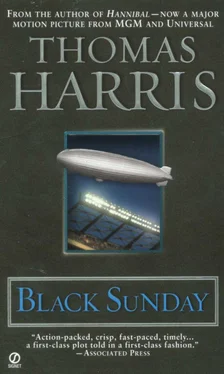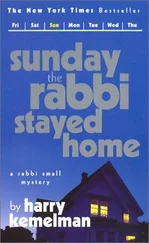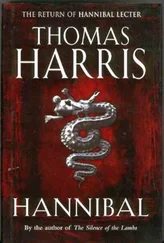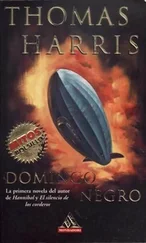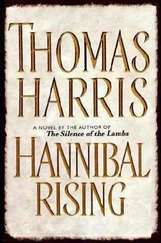Knowing that she would die tomorrow, she wept quietly for a half hour, wept for herself. And then, deliberately, she summoned the painful memories of the refugee camp. She went through her mother’s final agonies, the thin woman, old at thirty-five, writhing in the ragged tent. Dahlia was ten, and she could do nothing but keep the flies off her mother’s face. There were so many suffering. Her own life was nothing, nothing. Soon she was calm again, but she did not sleep.
At the Royal Orleans, Rachel Bauman sat at the dresser brushing her hair. Kabakov lay on the bed, smoking and watching her. He liked to watch the light shimmer on her hair as she brushed it. He liked the tiny hollows that appeared along her spine as she arched her back and shook her hair over her shoulders.
“How long will you stay after tomorrow, David?” She was watching him in the mirror.
“Until we get the plastic.”
“What about the other two, the woman and the American?”
“I don’t know. They’ll get the woman eventually. She can’t do a great deal without the plastic. When we get it, I’ll have to take Fasil back to stand trial for Munich.”
She wasn’t looking at him anymore.
“Rachel?”
“Yes.”
“Israel needs psychiatrists, you know? You’d be astounded at the number of crazy Jews. Christians, too, in the summertime. I know an Arab in Jerusalem who sells them fragments of the True Cross, which he obtains by breaking up—”
“We’ll have to talk about that when you are not so distracted, and you can be more explicit.”
“We’ll talk about it at Antoine’s tomorrow night. Now that’s enough talking and hairbrushing, or shall I be more explicit?”
* * *
The lights were out in the rooms at the Royal Orleans and the Fairmont. And around them both was the old city. New Orleans has seen it all before.
ON SUNDAY, JANUARY 12, the red sun rising silhouetted the New Orleans skyline in fire. Michael Lander woke early. He had been dreaming of the whales, and for a moment he could not remember where he was. Then he remembered, totally and all at once. Dahlia was in a chair, her head back, watching him through half-closed eyes.
He rose carefully and went to the window. Streaks of pink and gold lay along the east-west streets. Above the ground mist he could see the lightening sky. “It’s going to be clear,” he said. He dialed the airport weather service. A northeast wind at fifteen knots, gusting to twenty. That was good. A tailwind from Lakefront Airport to the stadium. Wide open, he could get better than sixty knots out of the blimp.
“Can you rest a little longer, Michael?”
He was pale. She knew that he did not have much strength. Perhaps he would have enough.
The blimp was always airborne at least an hour before game time to allow the TV technicians to make final adjustments and to let the fans see the airship as they arrived. Lander would have to fly that long before he came back for the bomb.
“I’ll rest,” he said. “The flight crew call will be at noon. Farley flew last night, so he’ll sleep in, but he’ll be leaving his room well before noon to eat.”
“I know, Michael. I’ll take care of it.”
“I’d feel better if you had a gun.” They could not risk carrying firearms on the flight to Baton Rouge. The small arms were in the truck with the explosive.
“It’s all right. I can do it all right. You can depend on me.”
“I know it,” he said. “I can depend on you.”
Corley, Kabakov, and Moshevsky set out for the stadium at nine a.m. The streets around the Royal Orleans were filled with people, pale from last night’s celebrations, wandering the French Quarter with their hangovers out of some sense of duty, a grim determination to see the sights. Paper cups and bar napkins blew down Bourbon Street in the damp wind.
Corley had to drive slowly until they were clear of the Quarter. He was irritable. He had neglected to get himself a hotel reservation while the getting was good, and he had slept badly in an FBI agent’s guest room. The breakfast he had been served by the agent’s wife was pointedly light. Kabakov appeared to have slept and breakfasted well, adding to Corley’s irritation. He was further annoyed by the smell of a cantaloupe Moshevsky was eating in the back of the car.
Kabakov shifted in his seat. He clanked against the door handle.
“What the hell was that?”
“My dentures are loose,” Kabakov said.
“Very funny.”
Kabakov flipped back his coat, revealing the stubby barrel of the Uzi submachine gun slung under his arm.
“What’s Moshevsky carrying, a bazooka?”
“I have a cantaloupe launcher” came the voice from the backseat.
Corley shrugged his shoulders. He could not understand Moshevsky easily at the best of times and not at all when his mouth was full.
They arrived at the stadium at nine thirty. The streets that would not be used as the stadium filled were already blocked. The vehicles and barriers that would seal off the stadium when the game began were in place on the grass beside the main traffic arteries. Ten ambulances were parked close to the southeast gate. Only outbound emergency vehicles would be allowed through the blockade. Secret Service men were already in place on the roofs along Audubon Avenue overlooking the track where the president’s helicopter would land.
They were as ready as they could get.
It was curious to see sandbag emplacements beside the quiet streets. Some of the FBI agents were reminded of the Ole Miss campus in 1963.
At nine a.m., Dahlia Iyad called room service in the Fairmont and ordered three breakfasts to be delivered to the room. While she was waiting for them, she took a pair of long scissors and a roll of friction tape from her bag. She removed the screw holding the scissors together and put a slender, three-inch bolt through the screw hole in one half of the scissors, binding it in place with the tape. Then she taped the entire handle of the scissor and slipped it up her sleeve.
The breakfasts arrived at nine twenty a.m.
“You go ahead, Michael, while it’s hot,” Dahlia said. “I’ll be back in a minute.” She took a breakfast tray to the elevator and descended two floors.
Farley’s voice sounded sleepy as he answered her knock.
“Mr. Farley?”
“Yes.”
“Your breakfast.”
“I didn’t order any breakfast.”
“Compliments of the hotel. The whole crew is getting them. I’ll take it away if you don’t want it.”
“No, I’ll take it. Just a minute.”
Farley, hair tousled and wearing only his trousers, let her into the room. If someone had been passing in the hall they might have heard the beginning of a scream, abruptly cut off. A minute later, Dahlia slipped outside again. She placed the DO NOT DISTURB sign on the doorknob and went back upstairs to breakfast.
There was one more piece of business to be settled. Dahlia waited until she and Lander had finished eating. They were lying on the bed together. She was holding Lander’s mangled hand.
“Michael, you know I want very much to fly with you. Don’t you think it would be better?”
“I can do it. There’s no need.”
“I want to help you. I want to be with you. I want to see it.”
“You wouldn’t see much. You’ll hear it wherever you go from the airport.”
“I’d never get out of the airport anyway, Michael. You know the weight won’t make any difference now. It’s seventy degrees outside and the aircraft has been standing in the sun all morning. Of course if you can’t get it up—”
“I can get it up. We’ll have superheat.”
“May I, Michael? We’ve come a long way.”
Читать дальше
